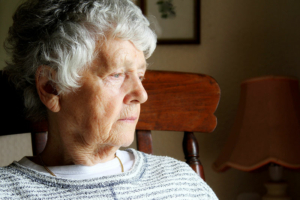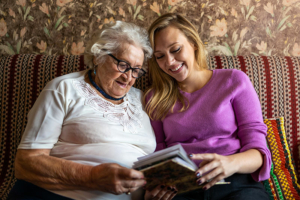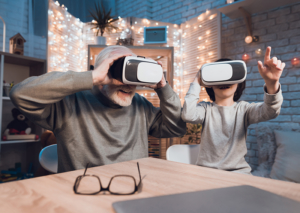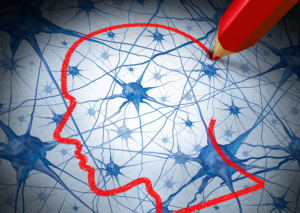Boredom and Alzheimer’s: How to Avoid This Dangerous Combination

Avoid the dangerous combination of boredom and Alzheimer’s with these tips.
Salt and pepper. Macaroni and cheese. Peanut butter and jelly. Some things are just meant to go together. One combination you want to avoid, however, is boredom and Alzheimer’s. Studies have revealed that boredom in dementia contributes to an increase in:
- Anxiety
- Aggression
- Agitation
- Hallucinations
- Delirium
- Wandering
- Depression
- And more
Not only that but, boredom in family members providing care for a person with dementia is also troubling, resulting in a heightened risk for burnout and depression.
Tips on How to Prevent Someone With Dementia From Becoming Bored
Clearly, preventing boredom is essential. These tried and tested strategies are a good place to begin.
- Since boredom and loneliness often occur together, make certain there are regular opportunities for socializing in accordance with the individual’s comfort level. If large groups of visitors are overwhelming, for instance, ask family members and friends to visit one or two at a time.
- Maintain a journal of which activities were most well received, as well as the ones that seemed to be of less interest.
- Take lots of time for reminiscing. Use photo albums, scrapbooks, and home movies. Browse the internet for top news articles from a particular timeframe to talk about together.
- Play the individual’s favorite music through a variety of means: the radio, a playlist, videos of concerts, outings to local school musical programs or the person’s religious organization to enjoy spiritual songs. Perhaps even plan a karaoke night with friends and family, or a guitar or piano singalong.
- Provide plenty of meaningful activities that build a feeling of purpose and self-worth. This could include helping with folding laundry, preparing meals, sorting nuts and bolts in a toolbox, or whatever provides a connection to the person’s past occupation or passions.
- Know what sparks interest, and seek out opportunities for engagement accordingly. For example, if the individual’s face lights up whenever they see a dog, explore pet therapy or arrange for regular visits with family and friends who have dogs.
A companion from Responsive Home Care is an excellent way to bring a breath of fresh air into the day of someone with dementia. Our caregivers are experienced and highly skilled in creative techniques to boost engagement and contentment for someone with dementia. A caregiver from Responsive Home Care will add much-needed socialization for your family member, while providing you with the opportunity to step away and take some time for yourself.
Some of the many ways we are able to help include:
- Providing transportation and accompaniment for fun outings
- Planning and preparing nutritious meals and snacks
- Engagement in ability-appropriate activities that provide purpose and help boost memory
- Reminiscing and conversations
- Assistance with personal care and hygiene
- And so much more
Call us at 954-486-6440 for more information on our customized care solutions in Fort Lauderdale, Deerfield Beach, Plantation, and the surrounding areas.



 Everyone goes through good days and bad days, and everyone is entitled to negative thinking or irritability every now and then. If you are caring for an older adult who appears to have fallen into a routine of continual negativity and complaining, there could be a reason for it. It’s worthwhile to explore whether or not a health issue may be the culprit for negative mood changes in a senior.
Everyone goes through good days and bad days, and everyone is entitled to negative thinking or irritability every now and then. If you are caring for an older adult who appears to have fallen into a routine of continual negativity and complaining, there could be a reason for it. It’s worthwhile to explore whether or not a health issue may be the culprit for negative mood changes in a senior.


 Picture for a second how it could feel to struggle with the cognitive obstacles of Alzheimer’s disease. The people who are closest to you are no longer familiar. The words that would roll off your tongue without a second thought are now just beyond your grasp. In fact, the whole world as you once knew it has turned completely upside down, leaving you yearning for a recognizable foothold.
Picture for a second how it could feel to struggle with the cognitive obstacles of Alzheimer’s disease. The people who are closest to you are no longer familiar. The words that would roll off your tongue without a second thought are now just beyond your grasp. In fact, the whole world as you once knew it has turned completely upside down, leaving you yearning for a recognizable foothold. If there is one constant thing in the race to solve the puzzle of Alzheimer’s, it is change. It appears as though any time researchers start to get a grasp on one piece of information, new information shifts their hypotheses in an alternative direction. That is most certainly the situation with the amazing new developments in
If there is one constant thing in the race to solve the puzzle of Alzheimer’s, it is change. It appears as though any time researchers start to get a grasp on one piece of information, new information shifts their hypotheses in an alternative direction. That is most certainly the situation with the amazing new developments in  Disorientation. Confusion. Memory loss. While these are definitely hallmark warning signs of
Disorientation. Confusion. Memory loss. While these are definitely hallmark warning signs of  Distress. Fear. Embarrassment. The thoughts and feelings surrounding a potential Alzheimer’s diagnosis may cause older adults to keep their suspicions to themselves. A recently available
Distress. Fear. Embarrassment. The thoughts and feelings surrounding a potential Alzheimer’s diagnosis may cause older adults to keep their suspicions to themselves. A recently available 